PTI govt unveils Rs7.02tr budget for FY20
Minister of State for Revenue Hammad Azhar presents the budget
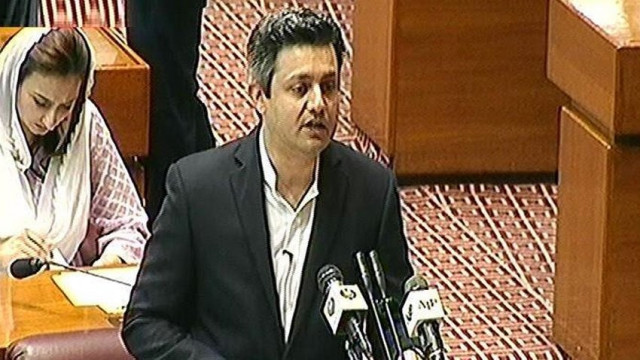
PTI govt unveils Rs7.02tr budget for FY20
The Pakistan Tehreek-e-Insaf (PTI) government has reiterated time and again that the country is going through economic turmoil and the leadership is determined to pull the country out of this crisis even if it has to take tough decisions.
Following the gloomy indicators that emerged in the Pakistan Economic Survey for the outgoing fiscal year, the country braces itself for what could be the most austere budget in history.
Budget to focus on strict fiscal discipline

Minister of State for Revenue Hammad Azhar presented Budget 2019-20. "There has been no increase in exports in the last five years. The circular debt has peaked to Rs1,200 billion - it is increasing by Rs38 billion per month."
Azhar said the country witnesses a $20-billion current account deficit while the trade deficit touched $32 billion in the outgoing fiscal year. "The economy has deteriorated due to expensive imports and subsidised exports."
The minister explained that heavy borrowing was done to keep rupee at a higher level, which could not be sustained for long. Consequently, the rupee depreciated in December 2017 and the economic growth slowed resultantly.
Azhar then went on to outline measures taken by the Imran Khan-led government to sustain the economy. "We reduced trade deficit while remittances saw an increase of $2 billion. The current account deficit dropped by $4 billion."
"We borrowed a total of $9.2 billion from China, Kingdom of Saudi Arabia, and the United Arab Emirates."
Azhar said the government gave more autonomy to the  State Bank of Pakistan. "We created the Single Treasury Account, launched the Billion Tree Tsunami project. We made Federally Administered Tribal Areas part of Khyber-Pakhtunkhwa."
"Keeping in view that the tax-to-gross domestic product (GDP) ratio is significantly lower in the region, our focus is on increasing tax collection. Only two million people, including the salaried class, paid taxes. Currently, there are at least 3.1 million registered commercial customers, out of which only 1.4 million are tax-return filers. Similarly, there are 50-million bank accounts in the country but only 10% of them are taxpayers.ÔÇØ
The Federal Board of Revenue has set a tax-collection target of Rs5.5 trillion for the next fiscal year. "Given the economic situation, the tax-to-GDP ratio needs to be maintained at 30%. It will touch 12.6% due to the target set by the FBR. A reduction in tax exemption will increase revenue."
The Asset Declaration Ordinance 2019 will allow undeclared assets to be entered into the economy. The computerised tax paying system will streamline the process as it will also lessen the cost of tax compliance.
ÔÇ£The government is maintaining a centralised treasury account at the SBP to deposit government funds.ÔÇØ He added that the federal and provincial governments will not be allowed to park their deposits at any commercial bank. The move is to curtail money laundering.
The government will not be borrowing from the central bank to tackle budget deficit as it fuels inflation. Azhar underscored that the governmentÔÇÖs aim was to shift the burden from the common man.
A total of Rs1,800 billion has been allocated for national development while Rs950 billion was set aside for federal development budget.
Azhar stressed that there will be no compromise on the efficiency of the armed forces ÔÇô their budget remains unchanged from last fiscal year at Rs1,150 billion.
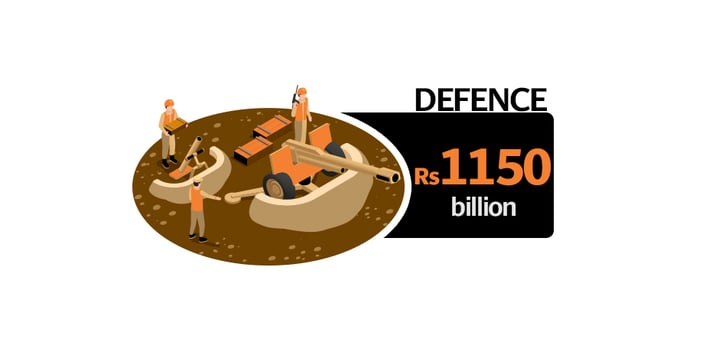
Ehsaas Programme: A new ration scheme will be introduced that will offer 80,000 people interest-free loans every month. An old-age home scheme will be launched for senior citizens. The government will launch a ration card scheme for one million people.
Sehat Sahulat Progamme: 3.2 million families to be inducted in the first phase.
The government has allocated Rs43 billion for higher education.
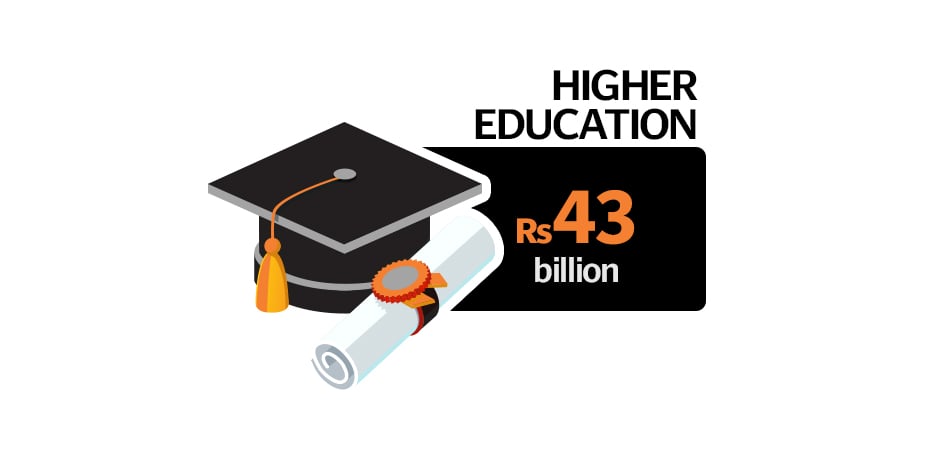
Azhar said Rs80 billion had been recovered through curbing load-shedding on feeders. He added that efforts will be made to curtail power theft. The government has set aside Rs80 billion for the energy sector.
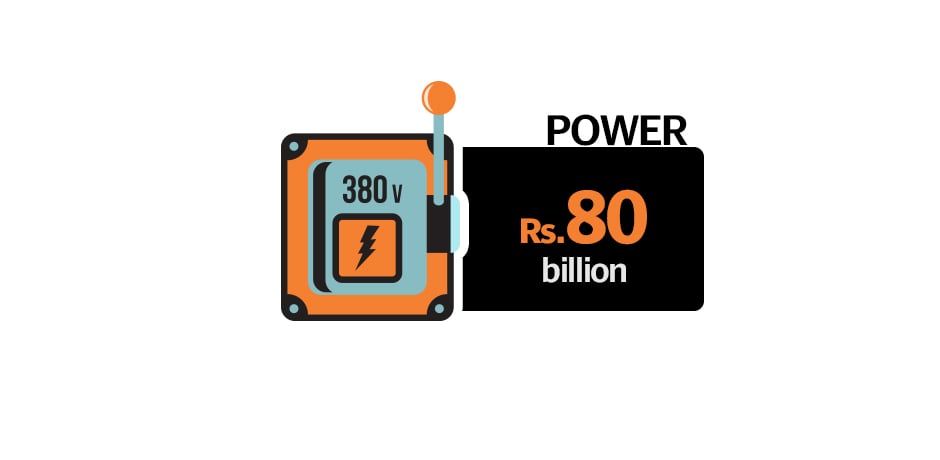
Rs20 billion and Rs15 billion have been allocated to buy land for the Diamer-Bhasha, and Mohmand dams respectively.
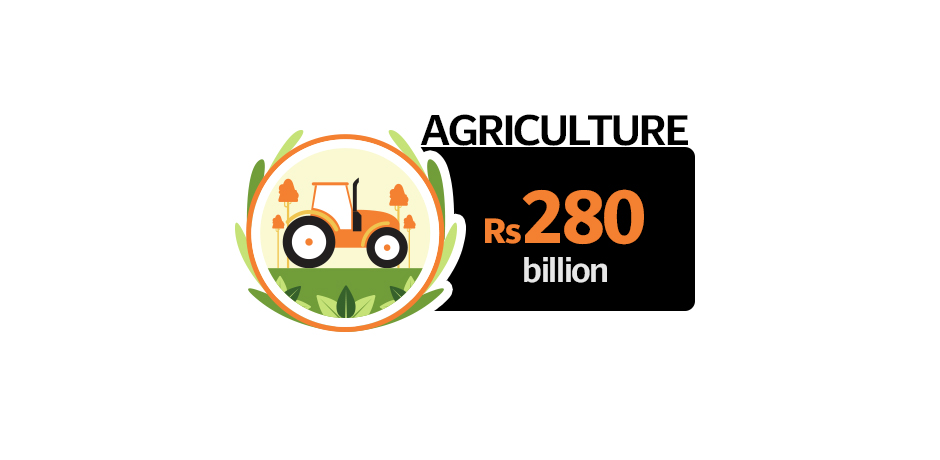
For the newly merged tribal districts, the government has set aside Rs152 billion. Another Rs35.5 billion has been set aside for a total of nine projects in Karachi.
Rs3,255 billion will be transferred to the provinces under the seventh NFC award ÔÇô it is 32% higher compared to last yearÔÇÖs Rs2,465 billion.
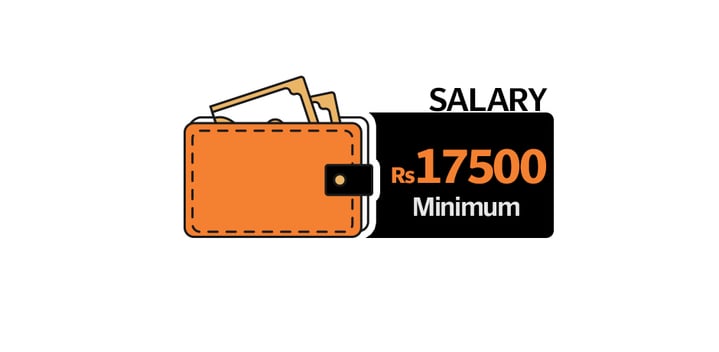
Salaries and wages: The minimum wage has been increased to Rs17,500. The government has increased basic pay of Grade 1 to 16 employees by 10% with an ad hoc allowance increase of 10%. The basic pay of Grade 17 to 20 employees has been increased by 5% and ad hoc allowance by 5%. Azhar said the Grade 21 and 22 officers have agreed against an increase in basic pay owing to the current economic situation. The net pensions have been increased by 10%.
Meanwhile, the PTI government has cut salaries of members of the National Assembly (MNAs) by 10%.
General sales tax: The general sales tax (GST) remains stagnant at 17%. However, import duty on luxury items has been increased. The sales tax on restaurants and bakeries has been reduced to 4.5%. The government has proposed to remove 3% of value-added tax on mobile phones.
Sales tax on sugar, fish, meat, and chicken has been increased to 17%, while GST remains stagnant at 17% on gold and silver jewellery.
Customs tax: The government has reduced customs duty on raw material, on steel for razor business it has gone down from 11% to 5%. The government has also proposed duty exemption on hydro crackers. The customs duty on basic medical products has been waived by 3%. The duties on liquefied natural gas (LNG) have been reduced from 7% to 5%. Raw material for paper will be exempted from duty.
Changes in federal excise duty
Cold drink increased from 11.25% to 13%
Ghee, edible oil increased to 17%
Branded cooking oil increased to 17%
Cement increased from Rs1.5 per kg to Rs2 per kg
Cars:
100-1,000cc cars: 2.5%
1,001cc-2,000cc cars: 5%
More than 2,001cc: 7.5%
Export permission: The government has given export permission to Afghanistan and Central Asian countries on zero-rating. All SROs and STOs have been declared null and void. The government has proposed sales tax at standard 17% for five zero-rated sectors.
ÔÇ£The government has fixed corporate tax at 29% for the next two years due to current difficult economic conditions in the country.ÔÇØ The depreciation and brought forward losses will be excluded from super tax. To boost youth employment, the businesses will be offered tax rebate if they hire fresh graduates.
The income tax eligibility has been fixed at Rs600,000 for salaried class and Rs400,000 for non-salaried class.
Restriction on non-filers for wealth purchase of over Rs5 million has been removed.



















COMMENTS
Comments are moderated and generally will be posted if they are on-topic and not abusive.
For more information, please see our Comments FAQ